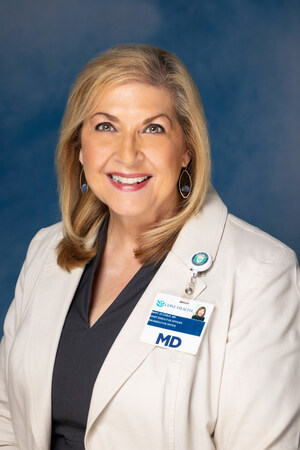Automated Telephone Reminders Increase Colon Cancer Screenings
Kaiser Permanente study finds people more likely to get screened after receiving automated reminders
PORTLAND, Ore., June 24 /PRNewswire/ -- Simple, automated telephone reminders can increase colon cancer screening rates by 30 percent, according to a Kaiser Permanente Center for Health Research study funded by the National Cancer Institute that appears in the July print edition of Medical Care.
The study – which is the first to examine whether automated calls can increase screening for colon cancer – involved nearly 6,000 Kaiser Permanente members in Oregon and Washington who were overdue for screening. Half received up to three reminder calls stressing the importance of screening and offering them an at-home kit to detect blood in the stool. Within six months, 22.5 percent of people who received reminder calls ordered and completed a stool card test, compared to only 16 percent of those who did not receive reminder calls.
"Most Americans who should be screened for colon cancer are not being screened. If everyone who is eligible for screening received reminder calls through a program like this one we could screen millions of additional people," said study lead author David Mosen, PhD, MPH, an investigator at the Kaiser Permanente Center for Health Research. "And because the calls are automated, they can be delivered to large numbers of people in a short period of time."
Colon cancer is the second leading cause of cancer death in the United States, claiming more than 52,000 lives a year. The U.S. Preventive Services Task Force urges Americans to start screening at age 50, unless they are at high risk, in which case they should be screened earlier.
There are several screening methods available, including: colonoscopy, where a tube is inserted into the rectum to examine the entire colon; sigmoidoscopy, which examines the lower colon; and fecal occult blood tests, a non-invasive test to detect blood in the stool. FOBT, which was the test used in this study, is often recommended as a first step, and requires people to place stool samples on cards and then send the cards to a lab.
"The stool test is easy to take, but many people see it as unpleasant. This study shows that simple, automated calls motivate more people to take the test, and that means we will detect more cancers at an early stage when we can still save lives," said Adrianne Feldstein, MD, the study's principal author and a researcher at the Kaiser Permanente Center for Health Research.
The study, conducted in 2008, was so successful that Kaiser Permanente in Oregon and Washington now is using the automated phone calls to remind all members who are overdue for colon cancer screening.
Other studies have found live phone calls very effective in boosting cancer screening rates, but because those calls require hiring extra people, they are cost-prohibitive for many health care organizations. Other research found that reminder postcards can boost screening rates, but automated phone calls are less expensive than postcards because the cost per call decreases as the number of calls increases. An automated call system could be implemented easily by public and private health care systems, especially those with fewer resources, researchers said.
In this study, people aged 51 to 80 received calls because they had not had a colonoscopy in the last 10 years, a flexible sigmoidoscopy or barium enema in the last five years, an FOBT test in the past 12 months, or a clinician referral for FOBT or barium enema within the last three months. The automated calls in English and Spanish lasted about one minute. Members were told about the importance of screening, and were asked to press a number on their phone if they wanted to order a free at-home kit. If the person did not order and complete the test within six weeks they received a second call, and if they didn't respond in another six weeks, they received a third call. People in the control group – who were of similar age, sex, BMI and race – did not receive automated calls, but may have received reminders from their primary care physician.
A recording of the automated reminder call is available at this link: http://www.kpchr.org/research/public/Audio/CRC_EN.mp3.
Study authors include David M. Mosen, PhD., MPH, Adrianne C. Feldstein, MD, MS, Nancy Perrin, PhD, A. Gabriela Rosales, MS, David H. Smith, RPh, PhD., Elizabeth G. Liles, MD, Jennifer L. Schneider, MPH, from the Kaiser Permanente Center for Health Research, Portland, Ore.; Michael Kositch, MD, Thomas Hickey, MD from Northwest Permanente, Portland, Ore.; Russell E. Glasgow, PhD, from the Kaiser Permanente Institute for Health Research, Denver; Jennifer E. Lafata, PhD, from Henry Ford Health System in Detroit; and Ronald E. Myers, PhD, from Thomas Jefferson University, Philadelphia.
About the Kaiser Permanente Center for Health Research (http://www.kpchr.org)
Kaiser Permanente's Center for Health Research, founded in 1964, is a nonprofit research institution dedicated to advancing knowledge to improve health. It has research sites in Portland, Ore., Honolulu and Atlanta.
About Kaiser Permanente
Kaiser Permanente is committed to helping shape the future of health care. We are recognized as one of America's leading health care providers and not-for-profit health plans. Founded in 1945, our mission is to provide high-quality, affordable health care services and to improve the health of our members and the communities we serve. We currently serve 8.6 million members in nine states and the District of Columbia. Care for members and patients is focused on their total health and guided by their personal physicians, specialists and team of caregivers. Our expert and caring medical teams are empowered and supported by industry-leading technology advances and tools for health promotion, disease prevention, state-of-the art care delivery and world-class chronic disease management. Kaiser Permanente is dedicated to care innovations, clinical research, health education and the support of community health. For more information, go to: www.kp.org/newscenter.
http://www.kaiserpermanente.org
SOURCE Kaiser Permanente
WANT YOUR COMPANY'S NEWS FEATURED ON PRNEWSWIRE.COM?
Newsrooms &
Influencers
Digital Media
Outlets
Journalists
Opted In






Share this article